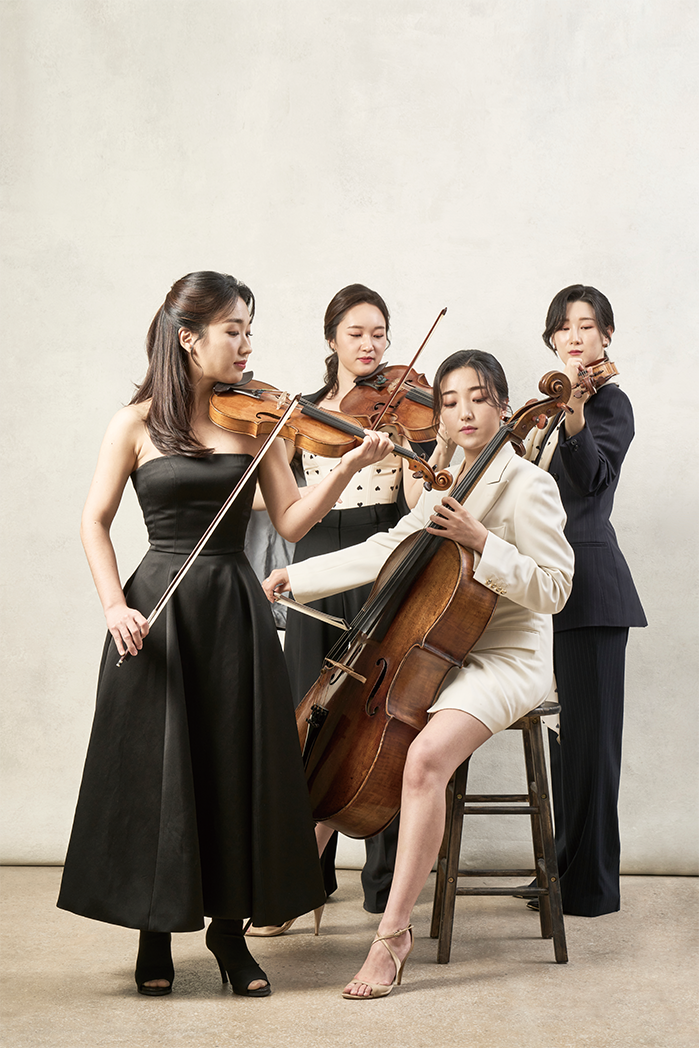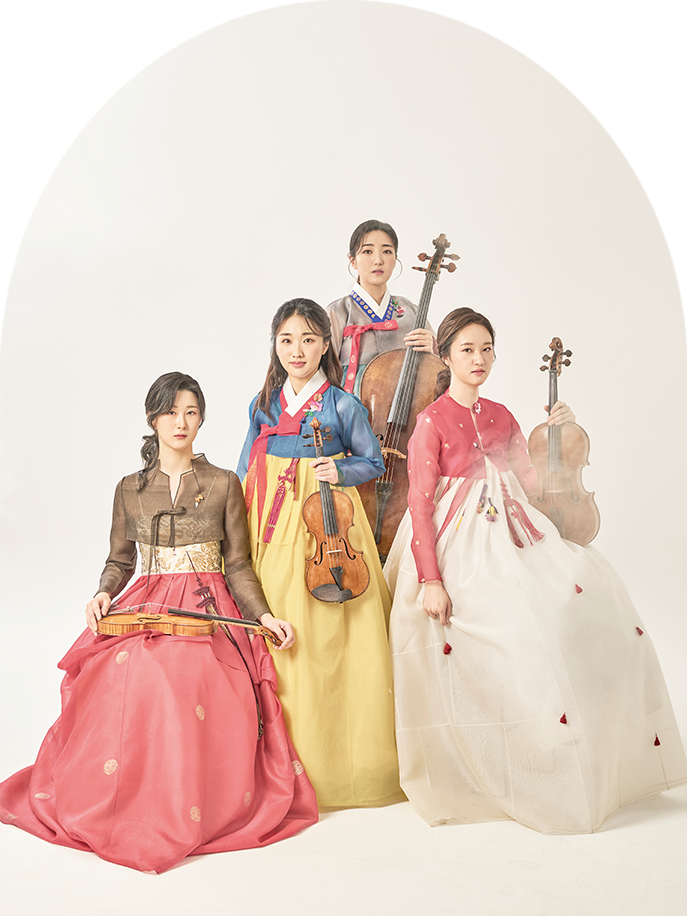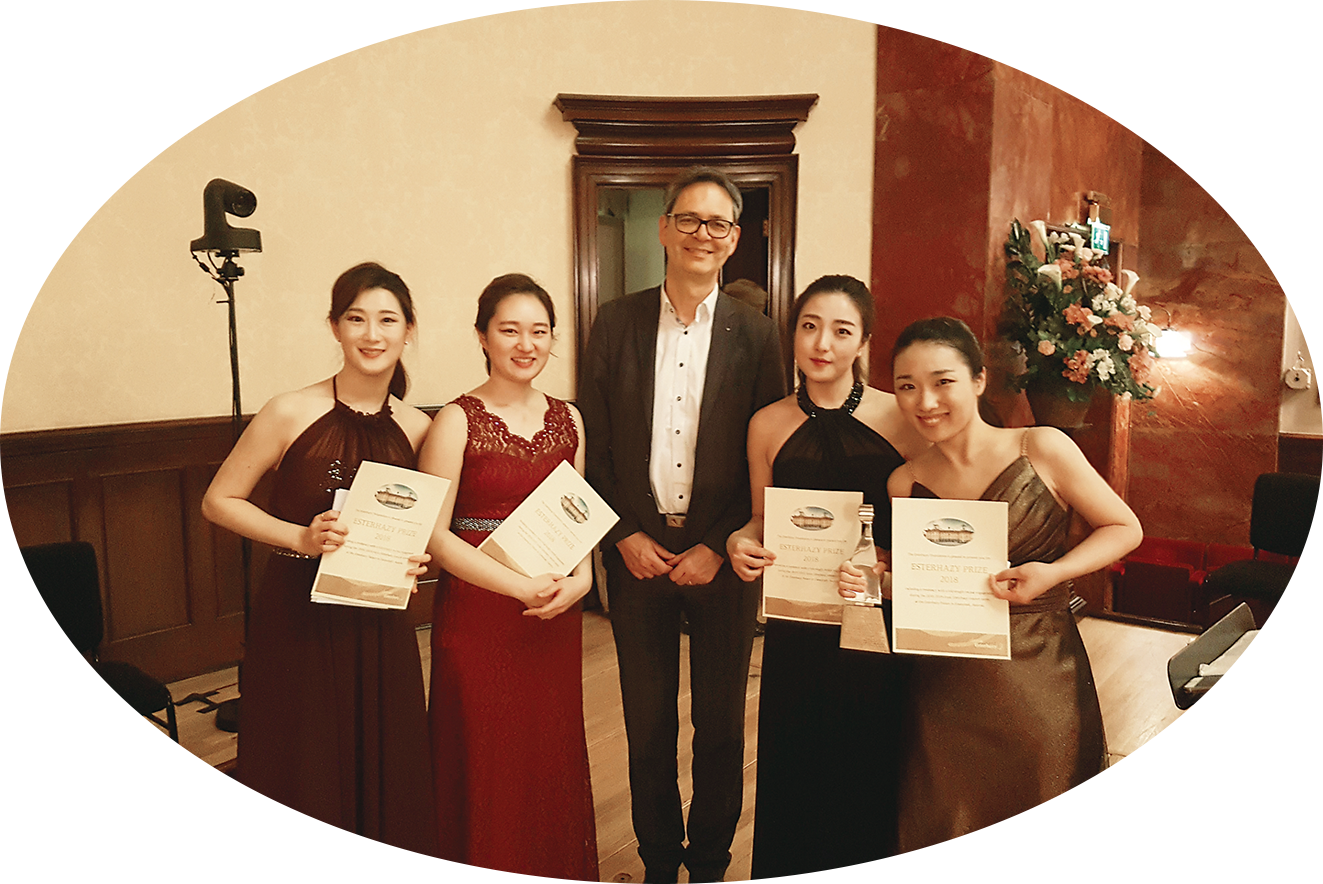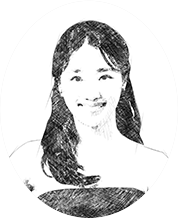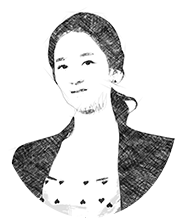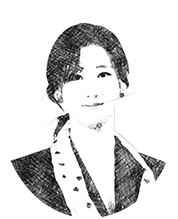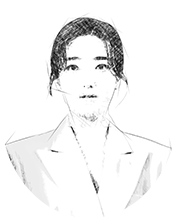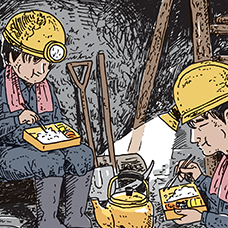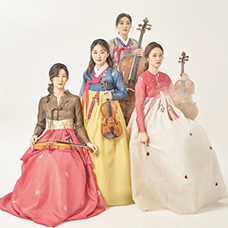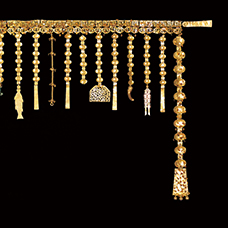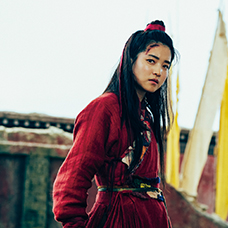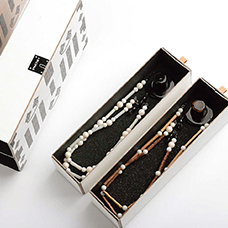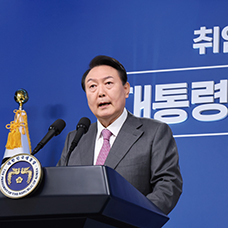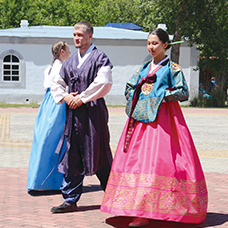Birth of a Quartet
Wonhee Bae When I was studying abroad at the Curtis Institute of Music, I had to take a course in chamber music every semester until I graduated. It gave me the opportunity to realize the incredible amount of good pieces in chamber music, but I didn’t have any intention of making it my career. Then, while studying in London, I fell in love with the idea of a string quartet. When I saw the Belcea Quartet playing at Wigmore Hall, I thought, “That’s what I want to do.” I left for Germany to study abroad with the dream of one day playing in a quartet at Wigmore Hall.
Yeeun Heo I went to an art middle school and high school, but my first experience with a string quartet was in college. I had played chamber music once or twice with friends, but I had no interest in playing in a quartet. I met Jiwon during my freshman year of college, and she enticed me by telling me how great it was to be a part of a quartet.
Jiwon Kim I broke my arm during my second year of high school and had to take a break from playing an instrument for a while. I didn’t have anything to do, so I went to the concert hall every day after school. The Seoul Spring Festival of Chamber Music was held close to where I lived. It was there that I learned about string quartets. It was also the first time I had ever experienced chamber music. While listening to the string quartet, I thought “I’m going to do that in the future.” I wanted to form a string quartet when I went to university.
Wonhee Bae We originally formed the quartet to earn credits for playing chamber music as it was part of our graduation assignment. The quartet was only supposed to be together for one semester. However, I came to recognize the passion that Jiwon and Yeeun had for chamber music. When we first started playing, we had a man in the quartet, but I wanted to find another female musician who could join the quartet. We called Yuna, who was living in Paris. She moved to Germany and on Oct. 1, 2016, our quartet was formed.
Yuna Ha I was very worried about my career path. I didn’t know what I wanted to do when I got to university. A professor I met suggested that I look into chamber music. “Chamber music is the future. Instead of focusing on solo work, focus on chamber music and learn.” Those words really resonated with me, and I became involved in string quartet activities for two years. However, the group dispersed as the other members left to study abroad. After that, I went to study at the Conservatoire de Paris. Whether it be orchestral, chamber music, or solo, I wanted to make the choice after studying more because I felt like my skills were still lacking. I found the opportunity to learn when I was asked to join the Esmé Quartet.
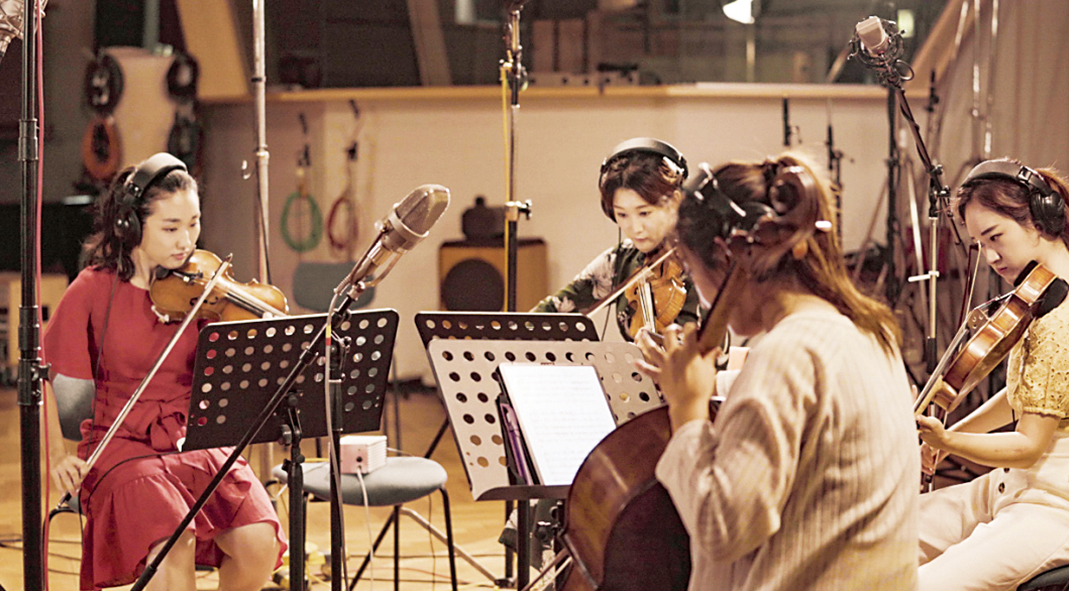
The Esmé Quartet records their debut album.
Desperation is the Driving Force
Yuna Ha In Korean culture, you are no longer considered to be young once you reach your mid-20s, right? We were all in our mid-twenties when we formed the quartet. We all felt a huge burden of financial independence since we were studying abroad. If we had not achieved any significant results within a year or two, the quartet probably would not have survived.
Wonhee Bae Having a clear goal became our driving force. From the beginning, my goal was to compete in the London Wigmore Hall Competition.
Yeeun Heo There is a strong view that a quartet is not a real “quartet” until it has been together for a long time. The only way for a new quartet to overcome those preconceived notions is to spend a lot of time practicing. We practiced all day and only took breaks to eat and sleep.
Wonhee Bae The Wigmore Hall Competition has three rounds, and rounds are held every day. The scores from each round are added up to determine the winner, so if you don’t perform well in one round, you don’t have any chance of winning. It’s a competition, but it kind of feels like a chamber music festival. All of the participating teams are required to perform at a London landmark.
Yeeun Heo We had to play a different song every day due to our schedule. We ended up having less than a week to practice the song we were going to play for our final performance. We prepared Schubert’s String Quartet No. 15 in G Major, D. 887, which is a 50-minute grand piece. We weren’t able to properly rehearse on the day of the final round because we needed to save our energy for the actual performance. We just set the tempo and then went on stage. The only thing we knew was that we believed in one another.
Wonhee Bae When we said we were doing that song in the finals, people reacted by saying, “Are you crazy?” The songs we chose were far from what is normally referred to as “competition music,” songs that captivate the audience with flamboyant virtuosity. However, we heard that the image of our quartet completing the song after enduring such a tight schedule had really moved the audience.
Yuna Ha No matter how competitive a contest is, the judges are, after all, part of the audience. Moving their hearts with a sincere performance was the key to winning.
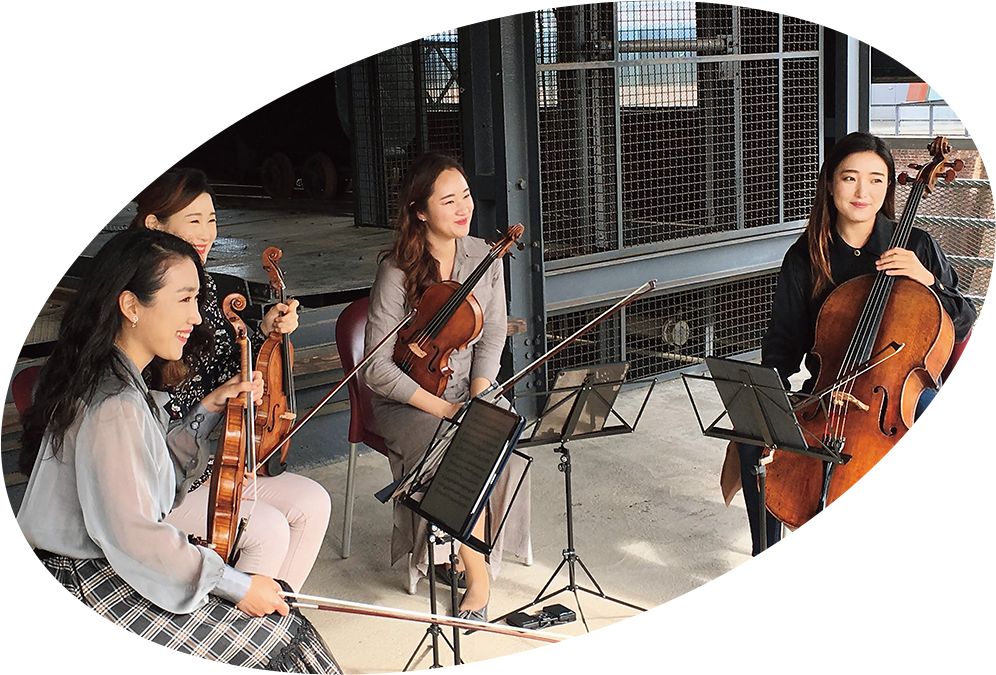
The quartet films the documentary ‘Korean Classics Generation.’
Forging a New Way
Wonhee Bae When we won the Wigmore Hall Competition, we were a young quartet that had only been around for a year and a half. Even then, a lot of people would ask me, “How long will you be able to stay together as a quartet?” We are Korean musicians based in Germany, so from a Western management perspective, we are seen as people who will eventually return to Korea. We also got a lot of prejudiced responses like, “The quartet is all women, so they’re going to break up as soon as they get married.” Also, many people think, “How can Asian people from another country understand the sensibility of the western music?” That’s why we worked even harder after the contest to show that we really are winners.
Jiwon Kim We wanted to share a newspaper review of one of our concerts with you because it made us happy. “The idea of a string quartet conjures up the image of four white men playing in tailcoats. But look at these young women. Their performance proves that the old cliché of a string quartet can indeed be broken.”
Wonhee Bae One of my students came to see one of our performances and said, “Teacher, I want to play in the Esmé Quartet when I grow up!” I think that is a lovely perspective to have. Enough time has passed for us to go from being students to adults, but we have decided to continue playing together as a wonderful quartet. There are quite a few “Esmé Kids” who say, “I want to be in a quartet like you. How can I do it?”
Yuna Ha A lot of female musicians our age have been playing in quartets in many different countries. We feel proud to know that we have presented a new possibility for female musicians.
Wonhee Bae However, a famous management company recently told me that women are still having a hard time. The person I spoke with was a woman, too. In reality, it’s not easy for female performers to continue touring due to childcare or physical problems. I’m not denying that there are problems like that. We work hard to face the problems in front of us and constantly think of how to overcome them.
